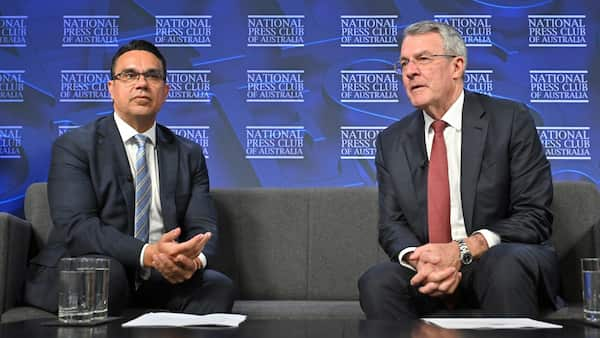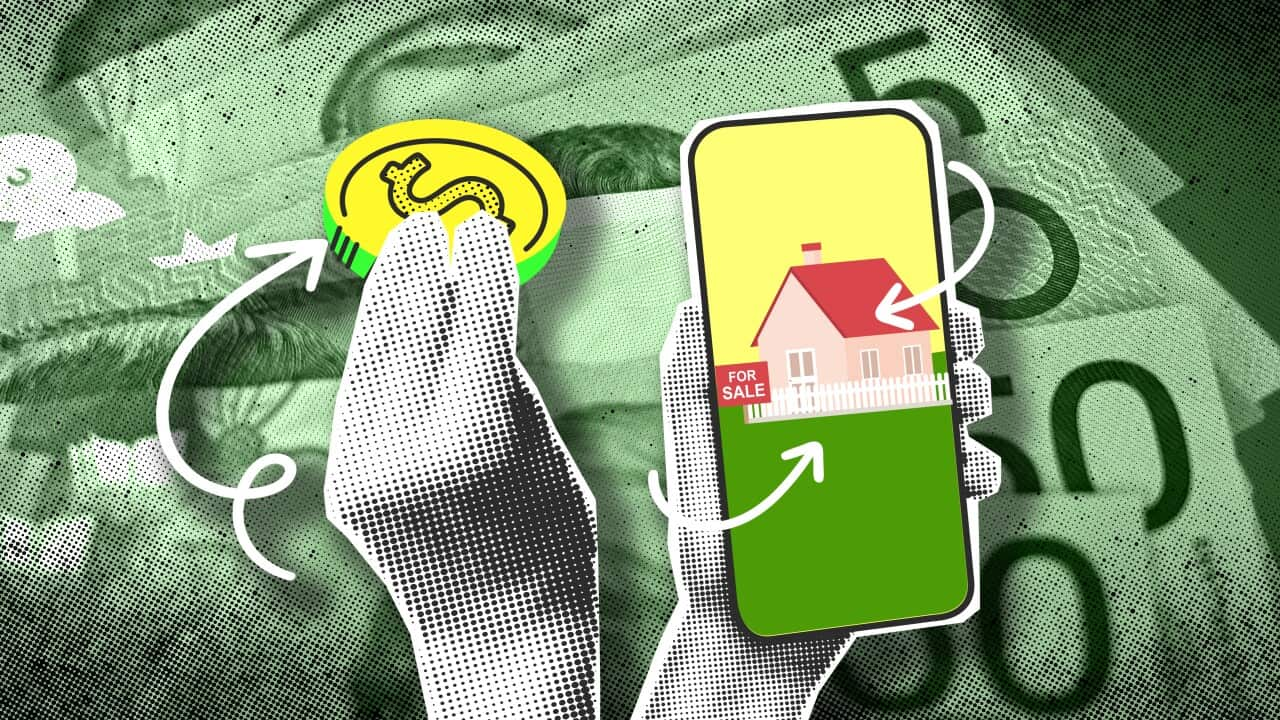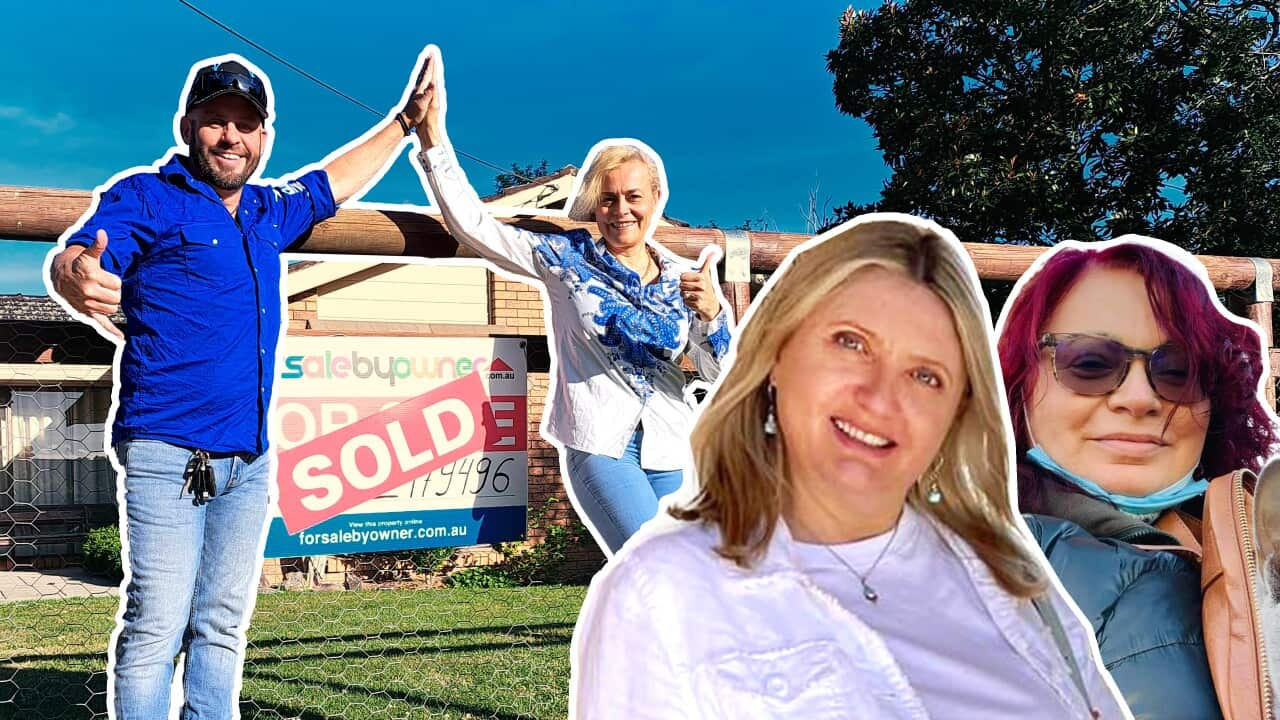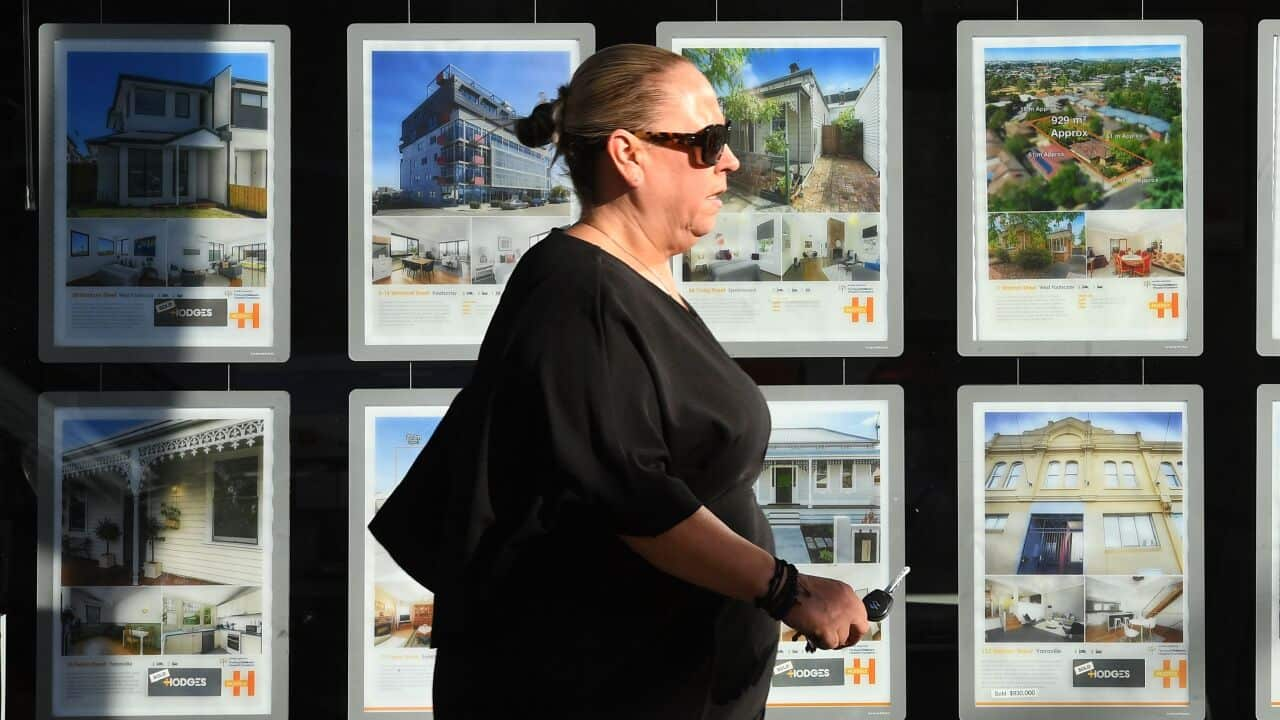If you've sold or leased a property through a real estate agent in the last few years, you'll probably be familiar with the advertising process: Your agent suggests some property listing platforms, organises for an ad to be placed — perhaps even arranges styling and photography — and then bills you for the cost.
This practice, known as vendor-paid advertising (VPA), only exists in a few countries around the world.
The VPA model — along with the market dominance of property listing companies realestate.com.au and Domain — has given Australia the most expensive real estate advertising fees in the world.
The increasingly steep prices set by the two major players will also be familiar to those who've sold or leased property in recent years.
What may come as a surprise, however, is that some agents are receiving a monthly cashback incentive to help promote a third company — one seeking to disrupt the market dominance of the other two — Melbourne-based listing platform Homely.
SBS News has received information from a source close to the company suggesting more than 200 agencies around Australia are taking part in the scheme.
Participating real estate agents can get a monthly cashback payment worth around a third of the fees paid to Homely for advertising and marketing purposes. The question, however, is whether vendors are told by their agent about this incentive — and how much, if any, of the money paid back to agents is coming out of vendors' pockets.
Both monetary and non-monetary incentives that are not disclosed to vendors, sometimes referred to as 'kickbacks', are illegal in Australia.
Homely denies the scheme is facilitating kickbacks, saying it's a "legitimate marketing services program" and that the money being returned to real estate agents comes from membership fees paid by the agents to Homely, rather than vendors.
Some experts say it's a relationship that should be transparent.

Australia is among the most expensive places to sell property, partly due to the dominance of realestate.com.au and Domain. Source: AAP / Paul Miller
A 'jumbo' challenger, with industry backing
Homely started in 2007 as a website called StreetAdvisor, through which Australians could share ratings and reviews of streets and suburbs.
It transitioned into a property listing company in 2014, offering agents a free listing service without "any obligation to upgrade". Three years later, it was promoting itself as the "third largest national real estate portal in Australia".
In August 2024, the company announced a listings syndication partnership with Gumtree "to create a jumbo No. 3 challenger" to realestate.com.au and Domain, industry media outlet Aim Group reported.
A spokesperson for Gumtree told SBS News the company was "not aware of this [Homely's cashback] program or involved in any way".
According to promotional material, Homely has convinced more than 700 Australian real estate directors, principals, and other industry figures to buy a direct stake in the company.
It has collected over $70 million from these investors, whom it variously describes as "members" or "strategic partners".
An internal company marketing slideshow from 2020 boasts that they include notable industry figures such as Barry Plant (of Barry Plant Real Estate Agents), Dean O'Brien (of OBrien Real Estate), and former Real Estate Institute of New South Wales board member Ewan Morton.
The involvement of the industry is something Homely is keen to emphasise.
In an April 2024 mailout to agencies, co-CEOs and founders Jason and Adam Spencer said they want "to introduce a cost-effective, industry-owned portal that champions significant industry involvement".
But are the interests of the industry always compatible with those of property owners?
LISTEN TO

Money laundering crackdown targets real estate agents, lawyers and accountants
SBS News
05:33
'We want to give back to the industry'
In a February 2024 webinar, a Homely representative told existing and prospective investors: "We want to be the industry player here."
We want to give back to the industry.
The representative then explained how the company proposes to do this, telling attendees Homely would offer agents "monthly cashback incentives", equal to roughly 35 per cent of an agency's total advertising spend with Homely, paid back on one condition: That the agent helps promote and market Homely.
The webinar presenter explained this can be done through "simple marketing tasks that are set and forget", for example, putting a Homely sticker on a shopfront window, writing an app review for Homely or posting a link to a Homely listing on social media.
The incentives are a revenue-sharing component of the company's 'Homely Plus Uplift' program.
An internal spreadsheet seen by SBS News shows almost 200 real estate agencies nationwide were taking part in Uplift as of early 2024.
According to SBS News' source, dozens more have joined since.
Many of these are branches of well-known agencies such as Ray White, LJ Hooker, Raine and Horne and RT Edgar.
None of those four agencies provided comment after being approached by SBS News.
In a statement, a spokesperson for Homely described the Uplift program as "a standard business-to-business marketing arrangement".
"To participate in the Homely Plus Uplift Program, agents pay a membership fee to Homely for access to premium branding and profiling across our platforms. The average membership fee paid by each agent for this access is approximately $650 per month," the spokesperson said.
This fee is paid by the agents and not the vendors.
The statement goes on to explain that, on average, the company pays "approximately $220 per month to each participating agent from the membership revenues for their marketing services" — roughly equal to 35 per cent of their monthly membership fees.

In an investor seminar, Homely sought to recruit more agencies to its Uplift program by citing a recent cash payment it made to one agency, totalling $3,605. Source: Supplied
In the same seminar, a representative from Homely describes the cashback incentive as a percentage of an agency's "total spend in supporting Homely" — which may include VPA.
The company did not respond to SBS News' follow-up questions about why this phrasing was used if the cashback payments are solely coming from membership fees. Nor did it respond to questions seeking to clarify whether participating agencies might be charging vendors for Uplift membership fees.
Some experts say the arrangement appears to be skirting close to laws prohibiting kickbacks and should, at the very least, be disclosed to vendors.
'It should be declared'
John Keating, a veteran estate agent and former chairman of the Real Estate Institute of Victoria's ethics committee, says any link between an agency's advertising spend and a cashback incentive is worthy of further scrutiny.
"If it's [the cashback amount is] directly proportional with the advertising spend to Homely, there's a link," he tells SBS News.
"If that 35 per cent is paid back … the payment that they make to Homely — it should be declared."

Real estate agent John Keating has been a vocal critic of unethical practices in his industry for decades. Source: Supplied
Homely has repeatedly rejected the suggestion that its cashback payments constitute a commission or rebate.
SBS News contacted the Real Estate Institute of Australia (REIA), the national peak body for the real estate sector, to ask about Homely's Uplift scheme.
A spokesperson for REIA said in a statement that it was not aware of the scheme, but added: "Agents should disclose any financial or commercial arrangements that may influence their choice of marketing services, ensuring transparency for their clients."
Stephanie Tonkin, CEO at Consumer Action Law Centre, agrees.
"It's incredibly important when we are talking about something like the sale of a home, that all the information is transparent and people can make choices about where they spend their money, what they're buying, given the high-stakes nature of the transaction," Tonkin tells SBS News.

Tonkin (pictured) says real estate agents "have a position of power in the [sale or lease] transaction and therefore must be really transparent about their associations and profits". Source: Supplied
[It] certainly would be unfair conduct and would warrant investigation by a professional body or regulator.
Rebates, commissions and the law
Laws forbidding undisclosed rebates or commissions vary across Australia's states and territories.
In Victoria, for instance, guidance from Consumer Affairs states: "It is illegal for an agent to keep a rebate, either monetary or non-monetary. It must immediately be paid to the client except if in anticipation you have already paid the amount or reduced the expenses charged."
In every jurisdiction, agents must, at the bare minimum, declare rebates and commissions to their clients.
Homely says the fees it charges real estate agents are "paid by the agents, and not the vendors".
The company did not answer questions about whether the Uplift contract contains provisions requiring agents not to pass on costs to their clients.
A document seen by SBS News titled Homely Plus Uplift Program Terms & Conditions also does not outline conditions for how agencies fund their participation.
It does, however, contain advice for a situation in which an agency "can't get vendor paid on an occasional listing" — meaning the agency can't convince a particular vendor to pay for their property to be listed on Homely.
It says participants' "earnings will vary from month to month and are dependent on a number of factors, including marketing tasks completed, overall effectiveness of the marketing and success of the Homely business".
By claiming the scheme relies on agency-paid fees for "marketing tasks" instead of vendor-paid fees for advertising, Homely is, in effect, saying the cashback payments do not need to be disclosed or passed on to vendors.
In internal Homely Slack messages seen by SBS News, Homely founder Adam Spencer suggests eligibility for the cashback payments depends not just on marketing tasks, but also "spending on VPA" — the advertising fees paid by the vendor.
"I've heard some language used around direct Uplift payment for VPA. This is simply not the case, as Uplift payments will not be made just for spending on VPA," Spencer wrote on Slack in late 2023.
"Unless the agencies do the marketing work, then we simply will not pay them."
From both the volume of certain payments and the company messaging, it appears the cashback payments could be made based on an agency's membership fees and VPA in exchange for marketing work. This makes it, at best, a grey area if such incentive payments aren't disclosed to vendors.
SBS News contacted over 80 agencies believed to be current or former participants of the Uplift scheme to ask whether the money paid back to them by Homely is treated as a commission or rebate, or if it's disclosed to their customers.
Most did not respond.
Four said the fees they paid to Homely as part of the Uplift scheme were paid by the agency itself and not by clients.
One agent told SBS News he passed the anticipated discount, "plus more usually", on to clients.
Contrary to this, Homely has told SBS News the payments it makes to agents under the Uplift scheme "are not 'savings' to be passed on to vendors".

Most Australians rely on real estate agents to buy, sell and lease property, but surveys show that most view the occupation as unethical. Source: Moment RF / Oscar Wong/Getty Images
'The local paper test'
While the onus for disclosing rebates or commissions rests on the real estate agent, Homely's insistence that the scheme doesn't meet the requirements for disclosure means many of its participating agents may not have sought their own advice about whether they are breaching the law.
SBS News understands the Uplift scheme was reviewed and given the all-clear by law firm MinterEllison, which is named as Homely's legal advisers in a 2020 document seen by SBS News.
MinterEllison did not respond to a request for comment.
Keating says regardless of whether the Uplift model poses a legal compliance risk for agents, any real estate sector business should ask themselves whether their actions pass "the local paper test".
Would we be embarrassed if anything we do appears on the front page of our local paper? If so, don't do it.
Keating has long been an outspoken critic of certain practices in the industry, such as dummy bidding — planting a false bidder at an auction — and underquoting.
He says the at times duplicitous conduct of real estate agents underpins the findings of the Governance Institute of Australia's 2024 Ethics Index, which shows real estate agents are the least trusted occupation in Australia.

The Governance Institute of Australia's Ethics Index 2024 found Australians consider real estate agents to be the least ethical occupation. Source: SBS News / Governance Institute of Australia
As part of this investigation, SBS News put a number of claims to Homely that the company outright rejected.
When asked whether the Uplift scheme is working against the interests of vendors, co-CEO Adam Spencer said: "Our mission has always been to provide vendors with a free and cost-effective alternative, and we categorically reject any assertion that we are working against their interests.
"We exist to represent and support vendors — approximately 97 per cent of vendors who list on Homely do so for free, lowering the barrier to entry and costs associated with selling their property. Approximately 3 per cent of vendors boost their listing with paid spend.
"The claim that agents are doing a disservice to vendors is fundamentally flawed as by lowering advertising costs across the industry, Homely directly benefits vendors, making property marketing more accessible and affordable."






